The Feud: The Hatfields and McCoys: The True Story Read online
Page 21
Not surprisingly, Hill gave the story a Kentucky slant: “The assertion that Anderson Hatfield and his sons Johnson and Cap are reputable, law-abiding people is not sustained, for the stories of their lawlessness and brutality, vouched for by credible persons, would fill a volume.” As for the other side, Hill (who interviewed denizens of Pike County only) could find no fault: “old man McCoy and his boys are represented as law-abiding, honest people by reputable men.”
Hill advised his fellow Kentuckians to refrain from entering West Virginia and especially to avoid doing anything that would provide West Virginia officials any “just cause of complaint.” He, like so many others, was well aware of the threat of a war breaking out along the border, a border that had not so long ago been engulfed in the most vicious of fighting.34
Chapter 17
Disorder in the Courts
February–May 1888
In 1888, Louisville, Kentucky, was a growing and ambitious city. Having added to its population by more than 10,000 people the previous year, surpassing the 175,000 mark, it was starting to feel its powers. The year 1887 had been a robust one for the local economy, with trade up in excess of $50 million over the previous year. More than seventy manufacturing businesses had launched in 1887, bringing in capital and fifteen hundred new working-class jobs. A tobacco town, Louisville had constructed additional warehouses to handle the rising tide of hogsheads that passed through its limits (that year, more than 110,000 of them, each weighing 1,000 pounds). Whiskey, jeans, leather, and cement had also boosted the city’s bottom line. But the biggest impact of all on Louisville’s prosperity was the opening up of eastern Kentucky, where, according to an annual report on the city’s economy, new capital had promoted the development of “phenomenally rich” iron, coal, and lumber resources. Railroads were laying tracks in the area, and prospects for the city, the report concluded, were “brighter now than at any time in its history.”
By 1888, another industry, steadily expanding since 1880, had surpassed even tobacco in value: the lumber trade. Some 125 million board feet, valued at more than $25 million, had flowed into Louisville that year from eastern Kentucky, making lumber the city’s leading business.1
But it was another import from eastern Kentucky that held the minds of the Louisville populace on the evening of February 16. The 7:15 Chesapeake and Ohio train pulled into the city’s Eighth and Water Street depot, a bit tardy, greeted by a crowd who packed the platform in the hopes of seeing the so-called Hatfield Gang—the nine bearded, tattered, fanatical mountain feudists they had read so much about in the news—who were being delivered on writs of habeas corpus for a hearing in the United States District Court.2
Inside the train, the prisoners sat in a second-class coach, two to each cushioned seat. They were Selkirk McCoy; Andy Varney; Wall Hatfield; the habitual scofflaw Mose Christian, who also happened to be Perry Cline’s cousin; L. D. McCoy; Guerilla Mitchell, who was also under indictment for two murders in Virginia; and the brothers Doc, Sam, and Plyant Mahon.3
Opposite them rode the guards. These included deputy jailers Perry Cline and his son-in-law Charlie Yost, as well as two of Cline’s sons, sixteen-year-old Allen and nineteen-year-old Sink. Allen and Sink, along with another guard, Jim Sowards, were officers in Buckner’s Rifles, the fifty-four-man Pikeville militia company that had been organized to prevent more feud trouble. Each guard wore a cartridge belt and a heavy revolver in a leather holster. Winchester barrels glinted over their heads. They had left behind a jittery citizenry in Pike County, despite the fact that they had cleared out the Pikeville jail.4
Wall and the others, who knew little of the legal wrangling that surrounded their capture and incarceration, had learned only two days earlier that West Virginia was attempting to free them. As word of their departure from Pikeville spread, Wall worried about violence. Indeed, ever since arriving in Pikeville, he had been expecting a lynch mob to show up. According to him, Randall had declared that “he could not desire us in a better place than the jail,” because there he could blow the prisoners “all to pieces with dynamite.” But when Perry Cline assured him that that would happen over his dead body, Wall said he “was not much disturbed after that,” and he confessed that he was treated well in jail, where he was rarely locked in a cell.
When the West Virginia prisoners were taken from the jail down to the docks on the Levisa Fork to board a steamboat, a crowd hooted, but no one attacked them. They paddle-wheeled down to Catlettsburg, where they stayed overnight in the local jail. En route to Louisville, the West Virginians coolly and confidently professed their innocence to a Courier-Journal reporter who interviewed them in their coach. “I know nothing about the crimes which have been committed in the quarrel between the McCoys and Hatfields,” Wall lied, “and I don’t think any of the men with me know or had anything more to do with the killing and fighting than I do.” Wall, who the reporter observed appeared to be a “quiet nonoffensive citizen” and whom he deemed the smartest of the group, told how they had been ousted from their homes by the posse. “As it seemed safer to submit than to resist and risk being murdered,” he said, “we went with the men who came after us.” Wall claimed that those who, “from all I have been told, committed the crimes were not taken,” while “those of us who did not expect any trouble and who remained quietly at home were.”
Lee Ferguson, Randall McCoy, and his attorney Jim York also rode with the group. Ferguson snorted when he heard Wall’s claims. While the worst of the Hatfield crowd had not been captured, he admitted, these prisoners were undoubtedly part of the gang.
With a morose stare, Randall described to the reporter the deaths of his children at the hands of the Hatfields. He talked of riding to hunt down the Hatfields with Big Jim and of his desire to return to his farm.5 Ferguson attested to the fact that Randall and his sons were, in general, “orderly and quiet” and that, unlike with the Hatfields, their names did not fill the court records with their crimes and misdemeanors.
After the other passengers disembarked and the station platform cleared, Cline directed the exit of his party in quasi-military fashion. The prisoners formed up in twos, arms locked. Guards with rifles flanked each pair. Others took up positions fore and aft, cocooning the prisoners. The guards then set out swiftly, clearing a path through the rowdy crowd curious to see the barbaric mountain men.
The phalanx marched up Seventh Street to Main, along Main to Sixth, and then up Sixth and around Jefferson to the county jail. As barbarians, the prisoners were something of a disappointment. “Their appearance was very unlike that of the mountaineers who are frequently guests of the United States while attending court here for making moonshine whiskey,” observed the Courier-Journal reporter wryly. “Soft felt hats covered all of their heads and there were nine mustaches among the nine prisoners. Each maintained an air of indifference and there was no exhibition of bravado or ruffianism.”
Still, the escort of small boys clinging to the outlaw parade grew steadily as they proceeded the short distance to the jail. After the jail door swung shut behind them, Perry Cline officially surrendered his prisoners to the U.S. marshal.
The next morning, Friday, a lengthy front-page article in the Courier-Journal announced the arrival of Louisville’s country cousins to hash out what it called “one of the bloodiest feuds on record in the country.” One of the key issues, the paper noted, was going to be the legality of the arrests and detainment of the prisoners. “They say that after we were over the boundary line of West Virginia, we were legally arrested,” the cagey Wall told the Courier-Journal, “but I’ve never been aware of any legal steps to confine us being made.” The media-savvy Lee Ferguson, who in addition to being the county prosecutor also published a Pikeville Republican newspaper called the Times, countered with the Kentucky point of view; namely, that the prisoners had been legally arrested after they crossed the border into Kentucky. Since West Virginia refused to arrest the wanted men, Kentucky was thus justified in taking the matter into its o
wn hands to protect itself from the violent outlaws “who had only to cross a narrow stream to commit the most atrocious crimes and then cross back again to safety from the law.”
Ferguson also defended Frank Phillips, who, he stated, was far from the desperado he was portrayed to be by the West Virginia counsel Eustace Gibson. Indeed, Ferguson said, he was “mild-mannered but courageous,” a man who had been chosen to lead the McCoy posse because of his “shrewdness and excellent personal qualities.” While they were in West Virginia, he falsely asserted, “all the fighting the Kentuckians had done was in self-defense.”6
IT WOULD BE A WEEK before the West Virginians appeared in court. Making themselves at home with the other prisoners, they became the center of attention. Wall, who was respectfully dubbed Judge by the others, conversed freely with all manner of inmates. While the locals tended to idle about until after midnight, the mountain men went to sleep immediately upon being locked in their cells at dark. Up in the morning by five o’clock, the musical mountaineers would serenade their fellow inmates back to life with a fiddle, bones, a horn, and a triangle. During the day, they often sat around as a group and listened to one of the locals read aloud. Hair-raising adventure stories were a favorite, and George Peck’s wry stories about a boy whose chief aim in life was playing pranks on his pa elicited great guffaws all around.
The West Virginians piously engaged in the jail’s prayer service on Sunday, singing heartily when called upon. Wall, towering over the swindler and the forger on either side of him who shared his hymnal, wailed out “One More River to Cross.”7
Simon Bolivar Buckner, governor of Kentucky (1887–1891), in Confederate uniform.
THE HABEAS CORPUS CASE WAS heard on Saturday morning, February 25. Judge John W. Barr presided. Just how significant the feud had become was indicated by the high caliber of men representing the two states: Kentucky attorney general P. Watt Hardin was accompanied by former Kentucky governor Proctor Knott. The Honorable Eustace Gibson, a former Confederate officer, Speaker of the West Virginia House of Delegates, and a U.S. congressman, represented West Virginia with the assistance of Kentucky colonel John Willis St. Clair and Governor Wilson himself. Notably absent, however, was the West Virginia attorney general, Alfred Caldwell, who had officially advised the governor that he did not believe that there was a legal justification for habeas corpus proceedings.8
In a preliminary hearing two weeks earlier, Judge Barr had stated that the Kentucky attorneys failed to show that the prisoners had been placed in the Pike County jail through due process of law. Thus, he was inclined to grant the writs of habeas corpus. It was an initial victory for West Virginia.9
Now, while the nine defendants sat impassively in two rows of carved wooden chairs before a packed courtroom, their legal representatives sparred with those of Kentucky over the scope of the case and the admission of evidence. After several hours, Judge Barr adjourned the court until Monday morning. On Sunday afternoon, the Hatfield contingent again took part in the jailhouse religious service. Although the organ recently installed in the jail for such occasions was silent due to the fact that the organist was out of town, they prayed, sang hymns, and then listened to a sermon delivered by a preacher who had been assaulted by two of the inmates prior to their incarceration and then invited by them to lead services. The preacher told how he had once been on his own “rapid course to destruction” and how he had found God’s light and been delivered. A reporter observing the service noted that the story of his life “seemed a revelation” to the Hatfields, and he was sure that they had been “charmed” by the tale and that it would have great effect on them.10
By Monday, Governor Wilson had arrived, accompanied by his trusted assistant secretary of state, John B. Floyd, and a pile of books and documents. The case was clearly quite important to Wilson, and he was well versed in the facts and legal arguments. A small, slim man of exceptional ability, Wilson sat just behind Gibson and St. Clair in the packed courtroom.
At ten o’clock the bailiff called the court to order, and the lawyers for each side began a series of procedural moves that would determine the accepted facts of the case, the evidence that needed to be examined, and what had to be proved. The court ordered that the proceedings be advanced in the name of Andrew Varney, whose petition rose first.
Portraits from the February 17, 1888, Louisville Courier-Journal, of (in order from the top) Randall McCoy and the defendants Wall Hatfield, L. D. McCoy, Selkirk McCoy; Doc, Sam, and Plyant Mahon; Tom Chambers, Mose Christian, and Andy Varney.
The Kentucky counselors began by admitting that the papers had not been served on the captured men until they reached the Pike County jail. They also admitted that the arrest by Frank Phillips was illegal but asked why the State of Kentucky should be held accountable for Phillips’s individual acts, for which he alone was responsible. Phillips had been appointed as an agent to execute a special purpose, and that was all he had the right to do. He had no authority to negotiate with Governor Wilson.
St. Clair opened for West Virginia. He said that he would show that this was not a case of kidnapping but one in which, as required by the Constitution, a treaty for the extradition of men from their homes to a foreign state was in progress and that Phillips’s correspondence proved that he was acting as an agent of the state. Thus, St. Clair pointed out, an agent designated by the governor of Kentucky had, without proper authority and by fraud, arrested the fugitives in West Virginia. Since the arrest and present holding were not legal, he argued, the prisoner was entitled to his liberty.
Willis “Windy” Wilson, governor of West Virginia (1885–1890).
A master tactician, Governor Wilson bit at his bushy red mustache as he focused on the proceedings, often advising the attorneys sitting in front of him. An issue of debate was his reluctance to honor Governor Buckner’s requisition. St. Clair wanted the court record to show that any delay was due only to the governor’s care in so grave a matter. Then, while Wilson was arranging to convey the fugitives to Kentucky, St. Clair stated, Buckner’s agent had murdered one of the fugitives, a citizen of West Virginia.11
This was the first time in the nation’s history that its courts were called on to quell warfare on the borders of two of its states. At the close of arguments, Judge Barr declared that the case was too important for him to render a judgment just yet. He needed additional consultation and reflection.
FIVE DAYS LATER, on the morning of March 3, a crowd again filled the courtroom, eager to see the prisoners and the men who had argued their cases, Gibson on one side and Knott and Hardin on the other. Judge Barr delivered his decision orally, warming up by restating the facts of the case over the course of about thirty minutes. “The case which is here presented perhaps has never arisen before,” he declared, “at least no case has been called to my attention, and I have seen none on the subject, and, so far as I know, the question has never been adjudicated by any state court or federal tribunal.” And here he got to the meat of the matter. “But, whatever may be the law on this subject: to this proceeding this court cannot consider it because it is beyond its jurisdiction.” By the time he reached his culmination, all eyes and ears were on him. “In matters of contest where there is a controversy between states, by the express provision of the federal constitution the jurisdiction is exclusively the United States Supreme Court.”12
In effect, Kentucky had won the first round. The court denied the motion for the discharge of the prisoners. Then there was a discussion about who should keep them. Andy Varney, for one, had had enough, announcing that he wanted to be sent back to Pike County. The county’s court was in session for only one week, and he wanted to be there to prove that he was innocent and then go home. This was an embarrassment to the West Virginia counsel, as they were arguing that the prisoners feared for their lives in Pikeville. Varney, who showed that he was no backwoods simpleton or an unwilling pawn of his own state, replied that he did not think it was fair to make him and others with him suffer so that West
Virginia could fight its legal battle. “This put the laugh on the representative of West Virginia,” noted the Wheeling Intelligencer. A somewhat annoyed Barr ordered the marshal to return the men to the Pike County jailer.13
Two days later, on Monday, March 5, Eustace Gibson and Proctor Knott presented short arguments before Judge Barr regarding whether an appeal might be sent directly to the U.S. Supreme Court. The West Virginia representatives contended that the indicted men could not get a fair trial in Pike County and that they were in real danger of being assassinated there. An appeal was granted, but only to the U.S. circuit court in Kentucky, also in Louisville. There, Judge Howell E. Jackson heard the same arguments. On the stand, Phillips again took responsibility for his acts, attempting to bolster the claim that Governor Buckner had nothing to do with any illegalities that might have occurred in his arrests. The case was argued at length for days, and then Judge Jackson granted an appeal to the Supreme Court.
ON MARCH 11, the Great Blizzard of ’88 struck at around midnight and continued a full day, dumping four and a half feet of snow in some places, wreaking havoc on the East Coast from Maine to Virginia. Winds of up to eighty miles per hour knocked out the telegraph system and piled snowdrifts fifty feet high. With daytime temperatures in the single digits, more than four hundred people perished from the storm and the bitter cold. In the Atlantic, two hundred ships grounded or wrecked, killing a hundred seamen. With fire stations snowed in, $25 million worth of property burned up.

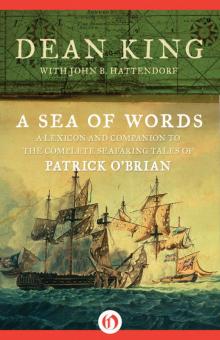 A Sea of Words
A Sea of Words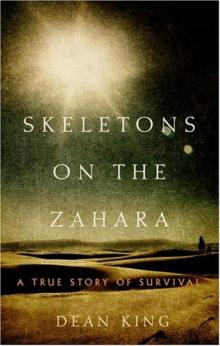 Skeletons on the Zahara
Skeletons on the Zahara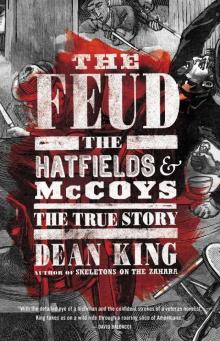 The Feud: The Hatfields and McCoys: The True Story
The Feud: The Hatfields and McCoys: The True Story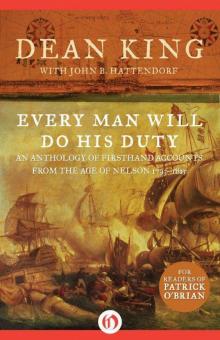 Every Man Will Do His Duty
Every Man Will Do His Duty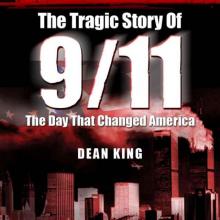 9/11...The Tragic Story of the Day that Changed America: The Terror, The Horror and The Heroes
9/11...The Tragic Story of the Day that Changed America: The Terror, The Horror and The Heroes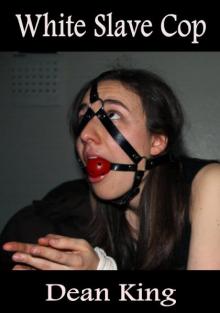 White Slave Cop
White Slave Cop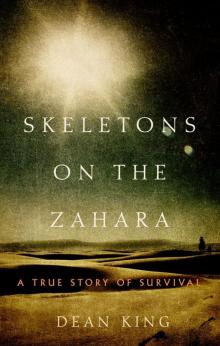 Skeletons on the Zahara: A True Story of Survival
Skeletons on the Zahara: A True Story of Survival